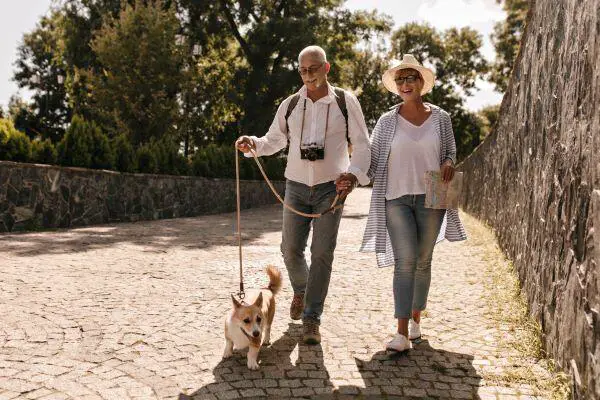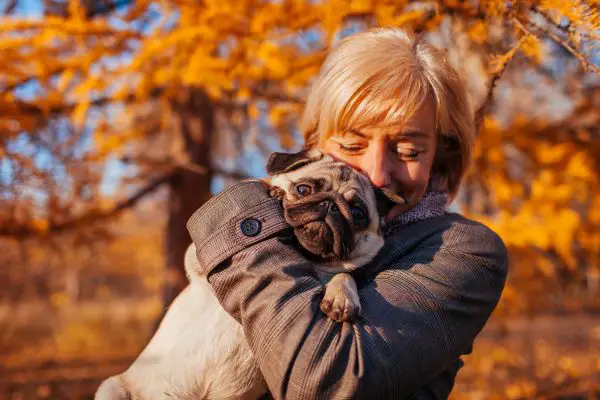
4 Dog Breeds That Can Help In The Safety For Seniors
Dogs are man’s best friend, and this applies regardless of a person’s age, gender, and other similar characteristics. When you talk to any dog lover, you’ll likely hear them saying that their household is livelier with their four-legged friend around. They might even express how it’s like having a child to care for and how their pet showers them back with love tenfold.
As mentioned, age doesn’t matter when it comes to looking after a dog, so even the elderly can have a canine buddy in their life. Raising a dog won’t just give them companionship and a sense of fulfillment but also keep them busy. What’s more, with the right dog breed, you can better ensure your senior family member’s safety in your absence. This is among the elderly safety tips you should follow in order to provide the best care to your aging loved ones.
If you’re keen on getting a dog for your senior relatives to keep them out of harm’s way, you may want to choose from these protective breeds, among many others:
1. Shih Tzu
A Shih Tzu is ideal for seniors who live in small apartments. Since this is a tiny dog, it doesn’t need a lot of space to move around freely and happily. A Shih Tzu is also furry, which is why it looks a lot like a stuffed toy most of the time. Staying true to its cuddly appearance, it doesn’t mind lazy afternoons simply sitting beside its owner.
With the right training, a Shih Tzu can be a loyal companion to seniors, saving them from possible loneliness and mental decline. Mental health issues have a lot to do with a senior’s safety given that they could get in dangerous situations when they’re depressed or not in a proper state of mind. Because a Shih Tzu barks quite loudly, it can easily alert its elderly owner or anyone else around of impending danger.
The only downside to this breed is that it requires regular grooming and breed-specific dog food.
2. Pug 
A pug is one of the best dogs for elderly individuals who aren’t as mobile anymore. Pugs are mostly lazy dogs, and they love to lounge around or stay indoors. Their hobbies even include taking naps! That fact makes the pug quite a low-maintenance dog, although it still needs to be walked every day, which is something you can help your senior relative with.
Pugs are very loyal and loving, so they can give a lonely senior plenty of companionship and keep an eye on them whenever you’re not around. Because of their short coat, they’re easy to groom as well. However, keep in mind that a pug’s skin wrinkles can get quite smelly if sweat and dirt get trapped in them, so wiping the dog down every day and giving it a bath at least every four weeks are a must.
3. Pomeranian
Here's another tiny dog making it to this list. As you can already tell, small breeds are suitable for the elderly for the very reason that they don’t need a lot of garden or home space. Among the dogs mentioned so far, the Pomeranian has the happiest temperament. So it’s sure to give your senior family members plenty of positive energy and bring them happiness whenever they’re feeling down.
Apart from being good-natured, Pomeranians are easy to handle. While they have quite a long coat of hair that has to be brushed on a regular basis, this can be one more thing to add to your elderly relative’s daily list of activities so they don’t feel bored or lack a sense of purpose.
4. Welsh Corgi
If you have senior family members who are still active and love to go out on walks and hikes, you’ll find a Welsh Corgi to be a good choice for them. Corgis are incredibly cute with their short legs and sparkly eyes, winning the hearts of children and adults alike.
An advantage of choosing the Corgi is it’d give your elderly relatives a reason to go out, socialize, and walk around. This way, they aren’t just sedentary at home. Corgis are energetic but not hyperactive, so seniors will be able to keep up with them just fine.
Conclusion
As you can see from the list above, the dog breeds that are best for the safety of seniors are well-trained, loyal, and generally calm. Each of them has its respective pros and cons, so it’s up to you to weigh those according to your senior relative’s needs. Remember that not all individuals in their golden years have the same capabilities as some are more physically active than others. There are also those in a better state of mental health than the rest.
If you aren’t certain about which dog you should go for, you can always ask for advice from a veterinarian and your loved one’s physician. By doing so, you can learn more about the breeds discussed here along with several others and determine the one that can help you keep your elderly relative safe.